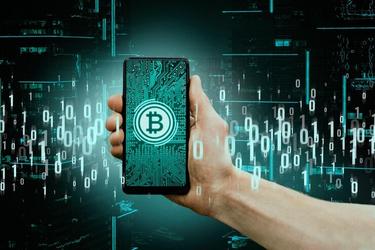Where are virtual assets used?
Virtual assets[1], also known as digital assets, represent a broad category of digital value that includes cryptocurrencies[2], digital tokens, and other types of digital resources. These assets are used in various sectors, offering innovative solutions to traditional financial systems[3], gaming, online content creation, and more. This document explores the multifaceted applications of virtual assets, demonstrating their growing impact on the global economy and beyond.
- Applications of Virtual Assets
- Key Facts
- Where are virtual assets used?
- Cryptocurrency and Financial Transactions
- Investment and Trading
- Decentralized Finance (DeFi)
- Gaming and Virtual Goods
- Digital Art and Collectibles
- Identity Verification and Secure Documents
- Real Estate and Asset Tokenization
- Supply Chain Management
Applications of Virtual Assets
1. Financial Services: Virtual assets have revolutionized the financial industry by providing decentralized alternatives to traditional banking and payment systems. Cryptocurrencies like Bitcoin[4] and Ethereum[5] facilitate peer-to-peer transactions without the need for intermediaries, reducing transaction costs and increasing efficiency.
2. Gaming and Virtual Goods: In the gaming industry, virtual assets serve as in-game currencies[6], collectibles, and property. Games like ‘Decentraland’ allow players to purchase, sell, and trade virtual real estate and other digital goods using cryptocurrencies, creating an entirely new economy within virtual worlds.
3. Online Content and Services: Virtual assets are increasingly used to monetize online content and services. Platforms like Patreon and OnlyFans use digital currencies[7] for subscriptions and content monetization[8], offering a direct revenue stream for creators without intermediaries.
4. Investment and Speculation: Beyond their utility, virtual assets are popular instruments for investment and speculation. The volatility[9] of cryptocurrency[10] markets attracts investors and traders looking for high returns, while the emergence of non-fungible tokens (NFTs) has created new opportunities for investing in digital art and collectibles.
Key Facts
- Virtual assets are reshaping financial services by enabling decentralized transactions.
- The gaming industry is at the forefront of adopting virtual assets for in-game purchases and property.
- Digital currencies facilitate new monetization models for online content creators.
- Cryptocurrencies and NFTs have become significant investment vehicles, attracting both individual and institutional investors.
Where are virtual assets used?
Virtual assets, a broad term encompassing digital currencies, tokens, and various forms of digital assets, have been rapidly integrating into and transforming multiple sectors of the global economy. These assets leverage blockchain[11] technology to provide innovative solutions to traditional financial systems, entertainment, real estate, and beyond. Their applications range from providing new investment opportunities to facilitating secure and transparent transactions. Understanding where and how virtual assets are used sheds light on their growing impact across different industries.
Cryptocurrency and Financial Transactions
One of the most prominent uses of virtual assets is in the form of cryptocurrencies, such as Bitcoin, Ethereum, and Litecoin. These digital currencies enable peer-to-peer transactions without the need for intermediaries like banks. They offer an alternative to traditional financial systems, characterized by their speed, lower transaction fees, and global reach. Cryptocurrencies are also used for remittances, allowing for cost-effective cross-border money transfers.
Investment and Trading
Virtual assets have become a new asset class for investors. Beyond buying and holding cryptocurrencies for potential long-term gains, users engage in trading on various exchanges, leveraging the volatility of these assets for profit. Additionally, the emergence of tokenized assets, where real-world assets like stocks, commodities, or real estate are represented as digital tokens on a blockchain, has opened new investment opportunities and democratized access to global markets.
Decentralized Finance (DeFi)
DeFi uses blockchain and cryptocurrencies to create a financial system independent of traditional financial institutions and regulators. Offering services like lending, borrowing, and earning interest in a decentralized setup, DeFi platforms use smart contracts[12] on blockchains like Ethereum. These platforms have introduced innovative financial products without the need for intermediaries, offering higher transparency[13] and potentially higher returns for users.
Gaming and Virtual Goods
The gaming industry has significantly adopted virtual assets, allowing players to own, buy, and sell in-game items as digital assets. Blockchain technology ensures the uniqueness and ownership of these items, making them more valuable and tradeable across different platforms and games. This has given rise to entirely new economies within the gaming world, where players can genuinely own assets and earn real money through their in-game activities.
Digital Art and Collectibles
The rise of non-fungible tokens (NFTs) has revolutionized the art world by enabling the digital ownership and sale of unique art pieces and collectibles. Artists and creators use NFTs to sell their digital creations directly to buyers, ensuring authenticity and ownership through blockchain. This has opened new revenue streams for artists and created a new market for collectors and investors.
Identity Verification and Secure Documents
Virtual assets and the underlying blockchain technology are used for secure and immutable identity verification processes. By tokenizing personal identification documents, educational certificates, and more, blockchain can offer a more secure and efficient way of handling and verifying such sensitive information, reducing fraud and improving privacy.
Real Estate and Asset Tokenization
In the real estate sector, virtual assets are used to tokenize property, breaking down real estate into smaller, more affordable digital shares. This approach makes real estate investment more accessible and liquid, allowing investors to buy fractions of properties and potentially earn returns on their investments without purchasing entire properties outright.
Supply Chain Management
Virtual assets and blockchain technology enhance transparency and traceability in supply chains. By tokenizing goods and using smart contracts, companies can track the production, shipment, and delivery of products in real time, ensuring authenticity, reducing counterfeits, and improving efficiency.
In conclusion, the use of virtual assets spans across various sectors, offering innovative solutions to traditional challenges. From transforming financial transactions and investments to revolutionizing the gaming, art, and real estate industries, the applications of virtual assets are vast and continue to evolve. As technology advances and adoption grows, virtual assets are likely to play an increasingly significant role in the global economy.
- Virtual Assets — Digital resources that have value in their use or as an investment, including cryptocurrencies and NFTs.
- Cryptocurrencies — Digital or virtual currencies that use cryptography for security and operate on a decentralized system, unlike traditional currencies.
- Financial systems — Complex systems comprising different institutions, including banks, markets, currencies, and policies, that support economic activities.
- Bitcoin — The first and most well-known cryptocurrency, was introduced in 2009 by Satoshi Nakamoto, who developed Bitcoin.
- Ethereum — A blockchain platform with its own cryptocurrency, Ether, is known for smart contract functionality.
- In-Game Currencies — Virtual currencies used within video games to purchase items, upgrades, or other in-game benefits.
- Digital currencies — Digital forms of money that exist only in electronic form, not in physical form like coins or notes.
- Content Monetization — The process of generating revenue from online content through subscriptions, advertising, or donations.
- Volatility — Rapid and significant price movement, a common characteristic of cryptocurrencies.
- Cryptocurrency — Digital or virtual currency secured by cryptography, facilitates secure, anonymous transactions.
- Blockchain — A decentralized digital ledger recording cryptocurrency transactions across multiple computers.
- Smart Contracts — Self-executing contracts with terms directly written into code, facilitating, verifying, or enforcing a contract on the blockchain.
- Transparency — The characteristic of blockchain technology that allows all transactions to be visible and verifiable by all network participants.
- Tokenization — The process of issuing a blockchain token that digitally represents a real tradable asset.



